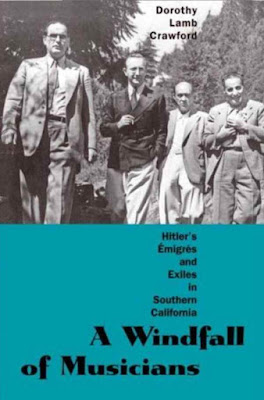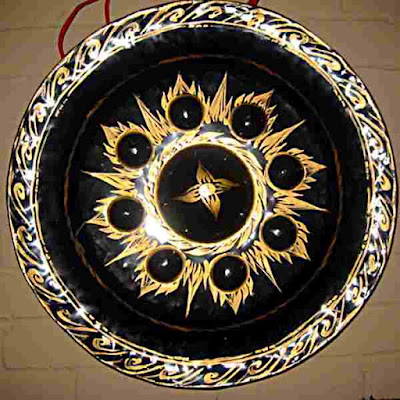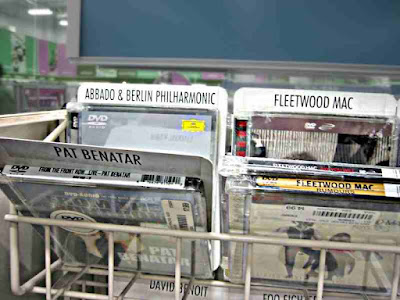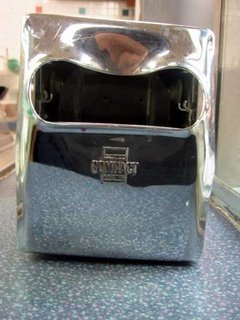The book chronicles an era that was completely finished by the time I, an exile from the Middle West, arrived in Southern California. Many things have changed here since Los Angeles received a host of Europe's greatest unwanted creative minds. Some things haven't. A fascinating book.

I just finished Chapter 6 entitled "Arnold Schoenberg". It deals specifically with Schoenberg's attempts to cope with life on the opposite side of the planet from his known world. I found the story of Schoenberg's exile extremely depressing, even tragic.
Schoenberg, of course, was a talented sincere artist of great psychological extremes. He had keen awareness of the history of music and his own contributions to it. He worked hard to explain the logic of what he did without ever denying the importance of inspiration. And he was an elitist called to point out that the future of all music would indeed reflect his influences.
Here in California he could squeeze out a living only by teaching. He found his American students woefully unprepared. The history of important European art music, like any other history, must have seemed terribly distant to them.
While on the faculty of UCLA he formulated giant plans for a conservatory-like program for all musicians, not just composers. There would even be a school for copyists! Of course his ideas were ignored. His greatest legacy today, unfortunately, seems to be the widespread image of the composer as professor.
Schoenberg's isolation on the West Coast is poignantly highlighted by a quote from his daughter about the regular Sunday afternoon salons he held in his home.
"After a while my father realized that these people were coming here to meet each other and not to talk with him.... Daddy would be sitting ... maybe completely alone, not talking to anyone, and so he decided one time that we weren't going to do this anymore. . . . For a long time on Sunday afternoons at two o'clock . . . we would get in the car and drive around the block . . . while these people came and found no one at home and went away." (p.129)Schoenberg lived just long enough to see his teachings misinterpreted by composers back in Europe. He was hailed as the creator of a new movement called serialism, a musical reaction to the horrors of war based on very un-Schoenbergian mathematical theories. Crawford writes:
As Schoenberg found European interest in his compositions growing in the postwar period, he wrote, "There is nothing I long for more intensely . . . than that people should know my tunes and whistle them." What happened was the opposite. Leonard Stein commented "Schoenberg was not responsible for the twelve-tone concept taking over. People like [Rene] Leibowitz. . . would come in the late forties and explain his music to him!" (p.131)All these and other aspects are detailed superbly in Dorothy Crawfords' chapter. To me they seem to describe a man condemned to both great and petty torments, incapable of overcoming either geographical or cultural isolation, unable to oppose the historical forces well beyond his control and unwilling to compromise his own devotion to principle. He found himself in a musical hell where the weather was very very nice. Wouldn't this story make a great novel? Maybe it already has.
These days significant serious music still is not native to Southern California. Talented local musicians go away to make classical careers while Southern California's musical institutions import their heroes from other places. Composers still flock here although not because of political exile. They hope for big industrial paychecks. Most of them probably have an unperformed opera, symphony or string quarter on an old external USB drive somewhere.
Remaining here, even in the age of Internet and discount airfare, means accepting a certain form of isolation. Southern California seems to be a unique place filled with talent and money - but creatively we live somewhere in the absolute elsewhere.
Reading the story of Schoenberg's later life resonated with my own feelings. In life, of course, one picks the best available choice and then lives happily ever after. Still, it is only natural to occasionally lament the lesser luminosity of the local grass. And it is revealing to discover that even the most influential musicians might have gazed across a similar fence.
The cover picture above shows (L to R) Otto Klemperer (very tall), Prinz Hubertus von Loewenstein, Arnold Schoenberg (very short) and Ernst Toch (holding a small dog).
Other more or less related Mixed Meters posts:
- Los Angeles, New Music Backwater
- Something I want to discuss with Arnold
- In which David's ranting is imaginary
- 30 Second Spots - Oh, Was He Still Around
- Schoenberg and Shostakovich for marching band
- Mozart's Penis versus Schoenberg's Penis (alas, the "Schoenberg's Penis" entry in the Urban Dictionary has disappeared. I did not make it up.)
- Kraft's Encounters (William Kraft, a successful composer whose entire career has been in Southern California)
- The Rest Is Noise (especially the section about politics of music)
- The New Yorker and the Hero Composer in Los Angeles
Exile Tags: A Windfall of Musicians. . . Dorothy Lamb Crawford. . . Arnold Schoenberg. . . Los Angeles Composers



















